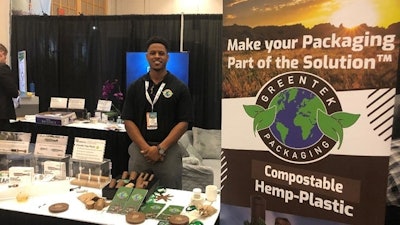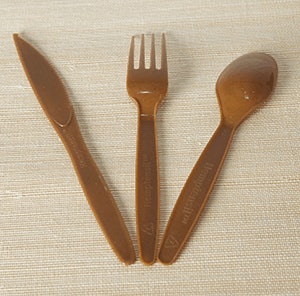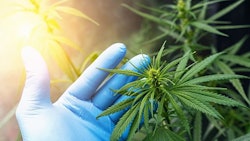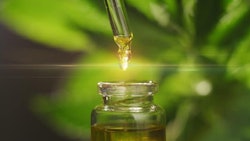
What do you call kitchen cutlery made from hemp? Hemptensils, according to Long Beach, Calif.-based GreenTek Packaging LLC.
Utensils made from hemp are a plant-based alternative to wasteful plastic end-use products, says Jordan Hinshaw, GreenTek’s business development director. The company is urging customers to compost its forks, spoons and knives, but if these products end up in a landfill, it won’t be devastating to the environment. What’s more important to the company is sustainable production.
“Our biggest concern was in offsetting petroleum production,” Hinshaw said. “The reality is that all products that end up in a landfill do produce some forms of gases or CO2 or methane as they break down, but we wanted to provide products that would mediate that, would reduce the toxic impacts upon the environment.”
Plastic utensils can take centuries to break down in the ground, according to National Geographic. They also are some of the deadliest items to seabirds, sea turtles and marine mammals, according to the Ocean Conservatory.
GreenTek notes in an investor deck that there could be more plastic than fish in the ocean by 2050. It also references how businesses are using more plastic during the COVID-19 pandemic than they were previously.
Hinshaw founded GreenTek with a group of investors in July 2019, and they launched Hemptensils

in June. In July, the company signed contracts and began selling products through ecommerce channels. It will follow this “soft launch” with a hard launch by the end of August, Hinshaw says. By that point, he added he also hopes to begin selling new hemp straw products.
The ecommerce channels include GreenTek's own website, Amazon, and the new “Shop” channels on Facebook and Instagram. In addition, the company will soon begin working with Walmart+. “We also have a host of B2B sales that are recurring as well, set up for us in the next few weeks,” Hinshaw says.
GreenTek partners with growers in California, Kentucky and North Dakota, he says, adding: “We've been chatting with a few co-ops that represent a few hundred acres of hemp in the Midwest, and seeing what they can do with their waste profiles, with their biomass and how we could feed into our processes."
GreenTek purchases processed, decorticated hemp that Hinshaw says has been converted into “petroleum-free hemp pellets.” At its facility in Long Beach, the company combines the pellets with a corn-based starch and enzymes, heats the mixture and injection-presses it into a mold. The plan is to eventually phase out the corn and make the utensils entirely from hemp.
“There are some unique specs that are needed for the hurd and the fibers that we use, but we have definitely been looking to partner with the industry, and I see it as a huge positive influence on bio-based and renewable resources in the industry,” Hinshaw says. “Right now, hemp has one of the least-developed infrastructures in the nation—obviously, it was just recently legalized.”
GreenTek is working on inking multiple distribution deals to get product into grocers and restaurants. It currently has a partnership with Follow The Leader Distribution, which is based in Vancouver, British Columbia in Canada.
Vincent E. Norment, GreenTek board member, marketing director and adviser, and the influence behind the Hemptensils name, is based in Illinois. He says GreenTek is also in contact with Lifted Made, a hemp product distributor based in Zion, Ill. Norment works with Lifted Made in his role as the founder and CEO of the Marijuana Hall of Fame.
Hinshaw points out that despite the Black population making up about 13% of the total U.S. population, only a small number of farmers are Black. It's something he and the company's original investors, like Norment, who are people of color, are hoping to change.
“We're not greatly represented in the hemp industry or the cannabis industry for that matter, despite having borne the brunt of most of the punishment in that whole arena,” Hinshaw said. “So, it's a major statement and a major stride for us to be able to own some part of the process, or part of the production, and the ability to help employ and utilize and develop skillsets in our own community.”
GreenTek also prides itself on sourcing all its inputs from within the U.S., Hinshaw said.
“I really feel like one of the greatest concerns moving into the next few decades will be domestic independence and the ability to actually produce things here,” he said. “As we feel all these inflationary pressures, a shortage of goods is the worst thing we could do to ourselves. So, finding not only resources that are here but also profitable manufacturing avenues is a really big missional value of ours."

























